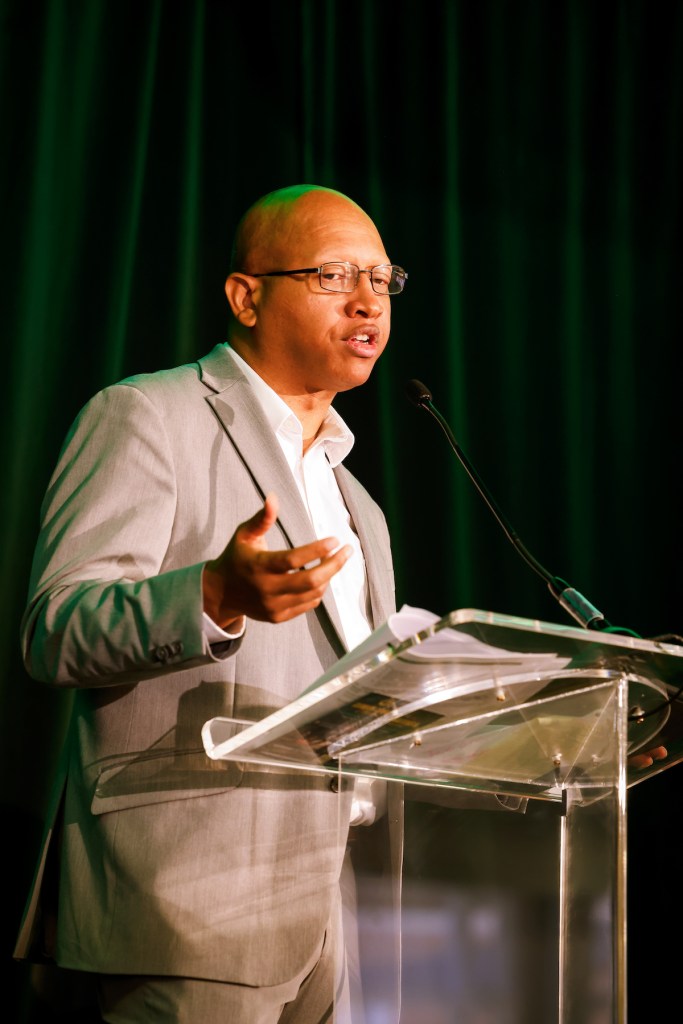As the federal government devotes hundreds of billions of dollars to environmental justice work around the country, leaders in the movement expressed a mixture of celebration, caution and criticism during the 10th annual Environmental Justice Symposium.
The four-day event, hosted in College Park, Maryland, by the Center for Community Engagement, Environmental Justice and Health, wrapped up on Sept. 14 after bringing together nearly 300 academics, activists, regulators and artists for virtual and in-person discussions and speeches.
The 2024 symposium’s theme — “Environmental Justice: Past, Present and Future” — was reflected by the many speakers who have spent decades in the fight for equal access to clean water, air and soil. The Biden-Harris administration’s policies, including executive actions and legislation like the 2021 Bipartisan Infrastructure Law and the 2022 Inflation Reduction Act, directed tens of billions of new dollars for environmental justice projects.
“What made [this] political moment possible is [that] people took their lives, took their time, sacrificed dinner at home with their kids… to go out in the streets, to go to their legislative offices and to fight,” said Michelle Martinez, director of the Tishman Center for Social Justice and the Environment at the University of Michigan, during a panel on Sept. 12.

“So the Inflation Reduction Act money is really just back pay for the [last] decade of hundreds, of thousands, of people in Black, brown, Indigenous communities who have been doing this labor of creating a better society for all of us,” Martinez continued.
Sessions included discussions of big ideas, such as “The Intersection of Art & Activism,” alongside practical workshops on skills like grant writing and using air quality sensors.
The symposium focused primarily on the Mid-Atlantic, and many panels centered on environmental justice case studies from around the D.C. region. Hundreds of online and in-person attendees from around the country could learn about: an Ivy City chemical plant operating within a residential neighborhood; efforts to improve food access and equity in D.C.’s wards 7 and 8; and air quality monitoring along Kenilworth Avenue in Prince George’s County, among dozens of other DMV-related topics.
Running the show was Dr. Sacoby Wilson, director of the Center for Community Engagement, Environmental Justice and Health and a University of Maryland professor, who founded the symposium in the fall of 2011.
Following the past, present and future theme, Wilson reflected on the major progress the environmental justice movement has seen and urged advocates to keep the pressure on government and philanthropic funders to make sure the money and attention is distributed fairly.
“Those on the front lines should be at the front of the line for those federal dollars,” Wilson said.


